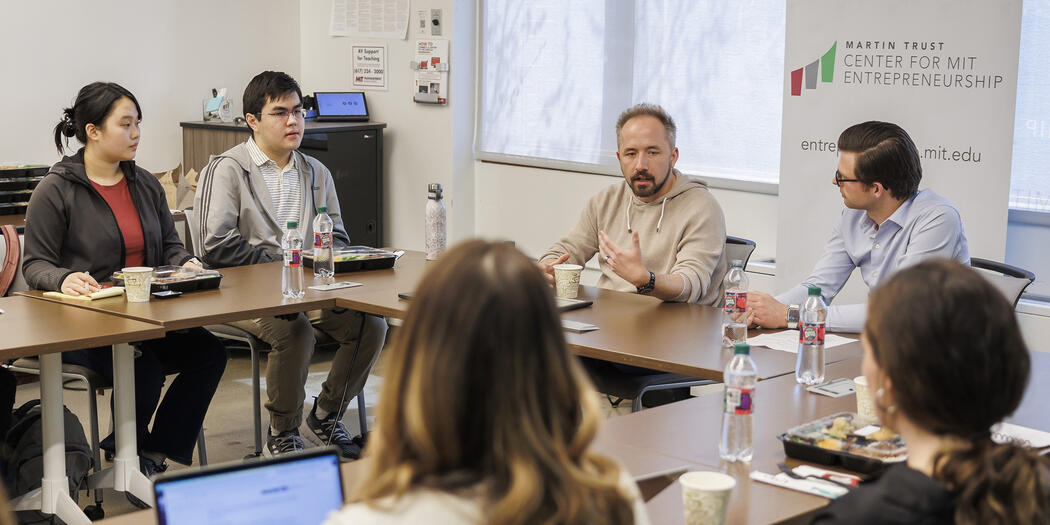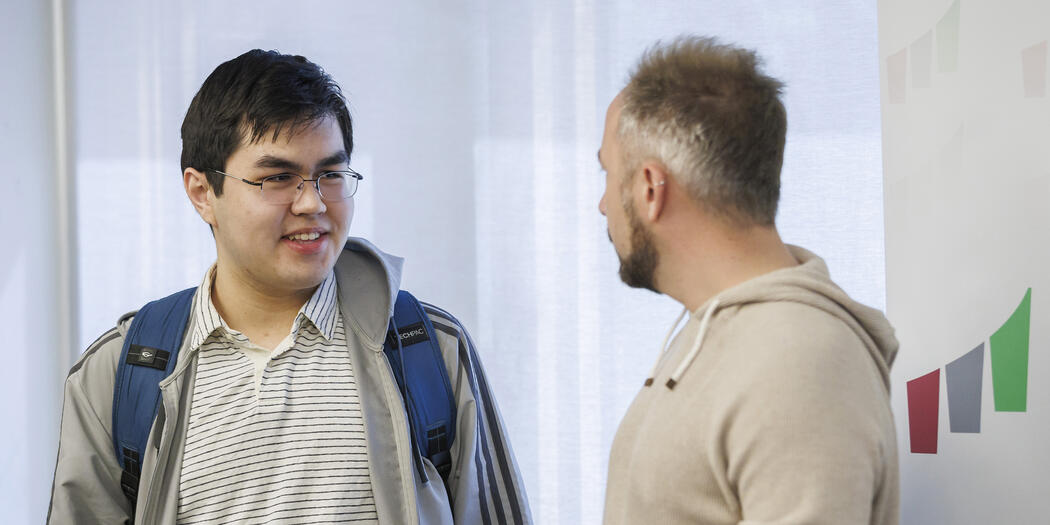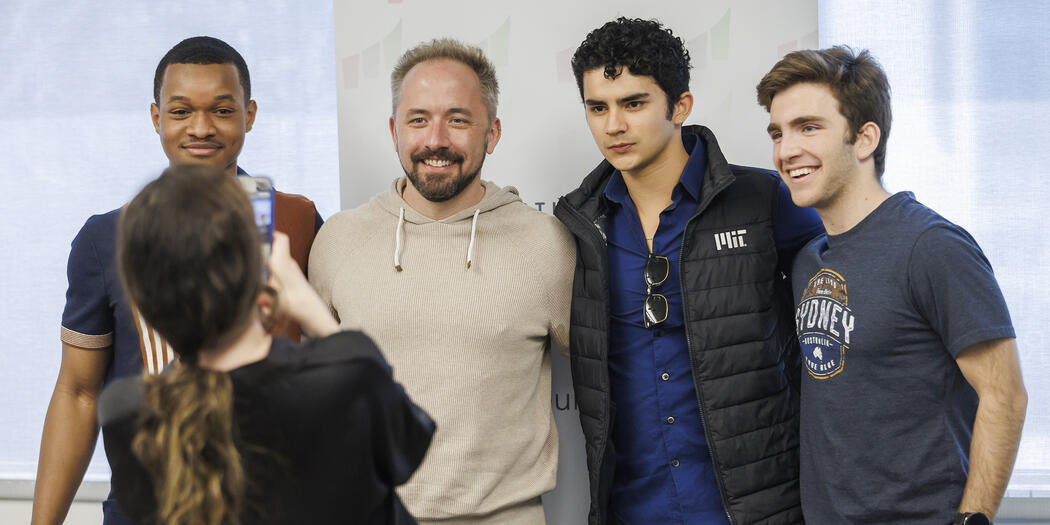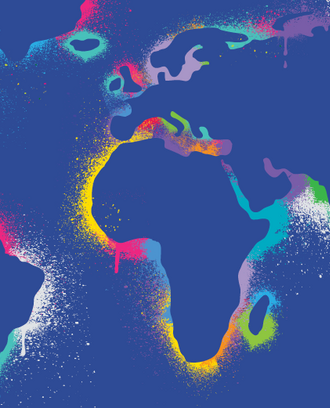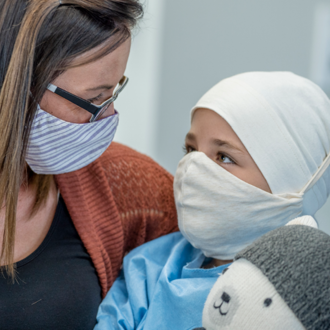Alumni
Entrepreneurship
Why Dropbox CEO Believes AI Will Change the Nature of Work
By
In 2017, Dropbox Co-Founder and CEO Drew Houston, SB ’05, used eight simple words to summarize his advice for entrepreneurs looking to transform their fledgling startups into something more.
“Nobody is born a CEO. You learn it.”
Six years later, Houston reemphasized the importance of always learning on the job while speaking with the inaugural cohort of the Engineering Entrepreneurship Certificate at the Martin Trust Center for MIT Entrepreneurship.
He specifically highlighted the significance of the “hidden lessons” young entrepreneurs can glean from the feelings of unpreparedness and discomfort they often encounter in their work.
“Your natural inclination is to run away from these feelings, but running towards them is an important muscle to build as you start taking on more responsibility in a safe context [like the Trust Center],” said Houston. “Because if something goes wrong, it’s not the end of the world, but it’s nice to get those reps in early.”
Throughout the fireside chat moderated by Paul Cheek (Executive Director, Martin Trust Center for MIT Entrepreneurship; Senior Lecturer), Houston discussed his time at MIT, the promise of generative artificial intelligence (AI), the future of work, and much more.
“AI is going to be a really powerful tool for creating better cognitive environments for knowledge work.”
Credit: Tim Correira
From “outside of games”
Though he would eventually enroll in Electrical Engineering and Computer Science (Course 6) at MIT, Houston initially became interested in computers thanks to the countless hours he spent playing games and teaching himself programming languages on the family PC.
The Acton, Massachusetts native assumed spending so much time in virtual worlds would lead to a career in game development. However, multiple summer jobs at Boston and Cambridge-area startups taught Houston there was more to computer science “outside of games.”
This lesson was especially relevant throughout his tenure at MIT.
“Suddenly, I could do all computer science all the time, but it was intense,” said Houston, recalling the many late nights he “drank from the firehose” before biking across the Harvard Bridge with completed problem sets in hand.
“Learning engineering formally was really helpful because when I started out, I was self-taught and just knew some programming, though there’s a lot of value in that, too,” he added.
Houston endeavored to bolster his knowledge of computer programming with the more formal education sustained by the Institute motto “mens et manus,” or “mind and hand,” through which MIT promotes education for practical applications. There were plenty of labs to attend and psets to turn in, but there were also extracurricular activities like the MIT Entrepreneurship Club, an undergraduate student community of founders.
These experiences provided him with a sturdy foundation in computer science and engineering, as well as an introduction to the entrepreneurial possibilities such knowledge often fosters in MIT students and alumni. Indeed, Houston took a break after his sophomore year to co-found an SAT prep company with his former high school teacher before returning to MIT.
“The important thing is to start, and not just to try to plan and plan and plan,” said Houston. “Get started. Don’t get ready to get started.”
“Learning engineering formally was really helpful because when I started out, I was self-taught and just knew some programming, though there’s a lot of value in that, too.”
Credit: Tim Correira
The future of (knowledge) work
With the rise of ChatGPT and other large language model chatbots, Houston had much to say about the promise of generative AI. Not only for entrepreneurs but for the future of work as well—especially knowledge work.
Houston is particularly interested in what existing and future AI applications could mean for the nature of work after the COVID-19 pandemic, which fostered an explosion of remote and hybrid work as offices closed across the globe.
“We don’t have to put everything back the same way,” he said, adding that it can be helpful to zoom out from the current moment to better understand its implications.
Consider the mainstream adoption of the personal computer, mobile technologies, and cloud computing, the latter of which Houston helped to advance through Dropbox, the company he co-founded in 2007 with fellow MIT student Arash Ferdowsi.
Each of these touchpoints has significantly disrupted business as usual and completely changed the nature of certain work streams during the past few decades. According to Houston, generative AI may indicate the next cycle of disruption.
“The silicone brains we’re creating can read a billion documents, deal with large amounts of information, and do things in a detail-oriented way. There will be opportunities for combining their strengths with human brains in ways that are very powerful,” said Houston. And when the Engineering Entrepreneurship Certificate students enter the workforce, he continued, they will have “the equivalent of many virtual assistants” to help them.
Yet generative AI is still in its infancy. The possible implications for knowledge workers and the cognitive contexts they occupy are as great as they are indeterminable, and entrepreneurs are left with more questions to answer and problems to solve than not. Which, per Houston, can be very good for business.
“Your natural inclination is to run away from these feelings, but running towards them is an important muscle to build as you start taking on more responsibility in a safe context [like the Trust Center].”
Credit: Tim Correira
The business of technology
For every problem solved by advancing technologies, a new problem (or problems) typically arises. Sometimes, in the case of Dropbox, the same problem persists in a new form.
Houston started the company to solve the frustrating issue of file organization and syncing via cloud computing, which already existed at the time but was not normalized to the degree it is today. “Ironically, that higher-level problem is still there,” he said. “My stuff is everywhere, I can’t keep track of it, and I’m overwhelmed. So, maybe it’s less about files and file syncing and more about something else.”
That something else may pertain to the nature of knowledge work and how it will function with the advent of generative AI.
“AI is going to be a really powerful tool for creating better cognitive environments for knowledge work, which is important because the whole premise of knowledge work is to take someone with a brain, put them in front of a screen, and yield something good from it,” said Houston.
What we have today is not perfect, he admitted, but it’s a great start.

